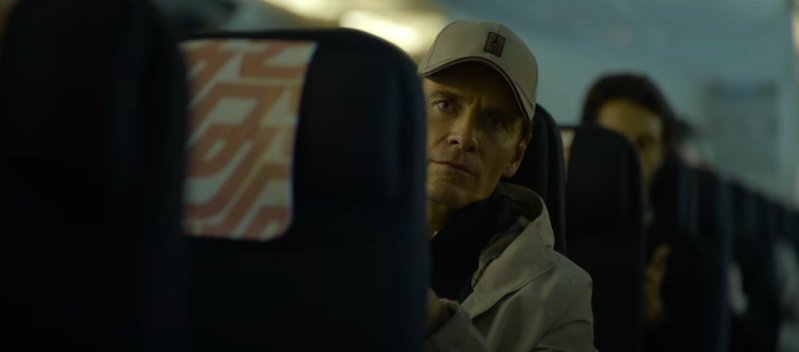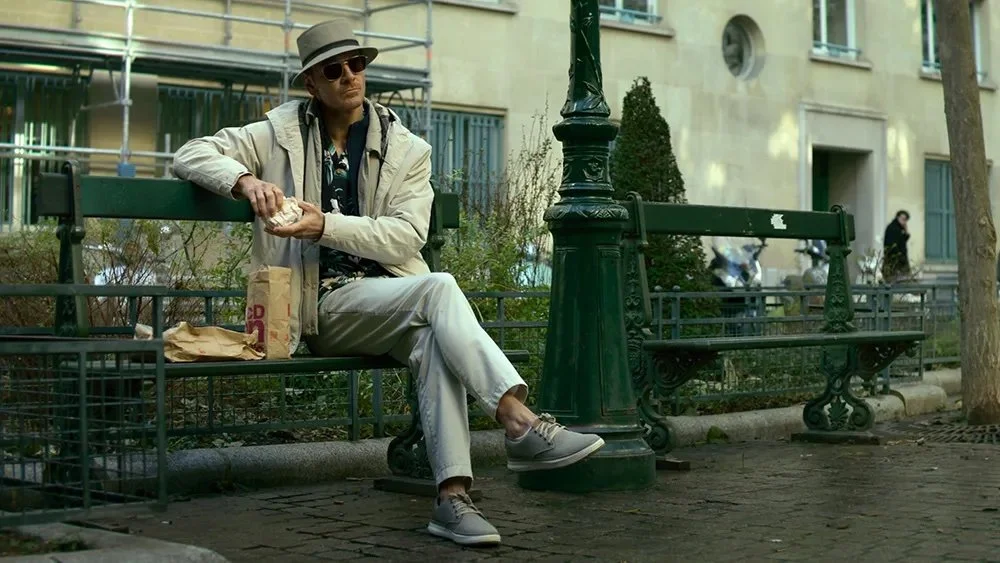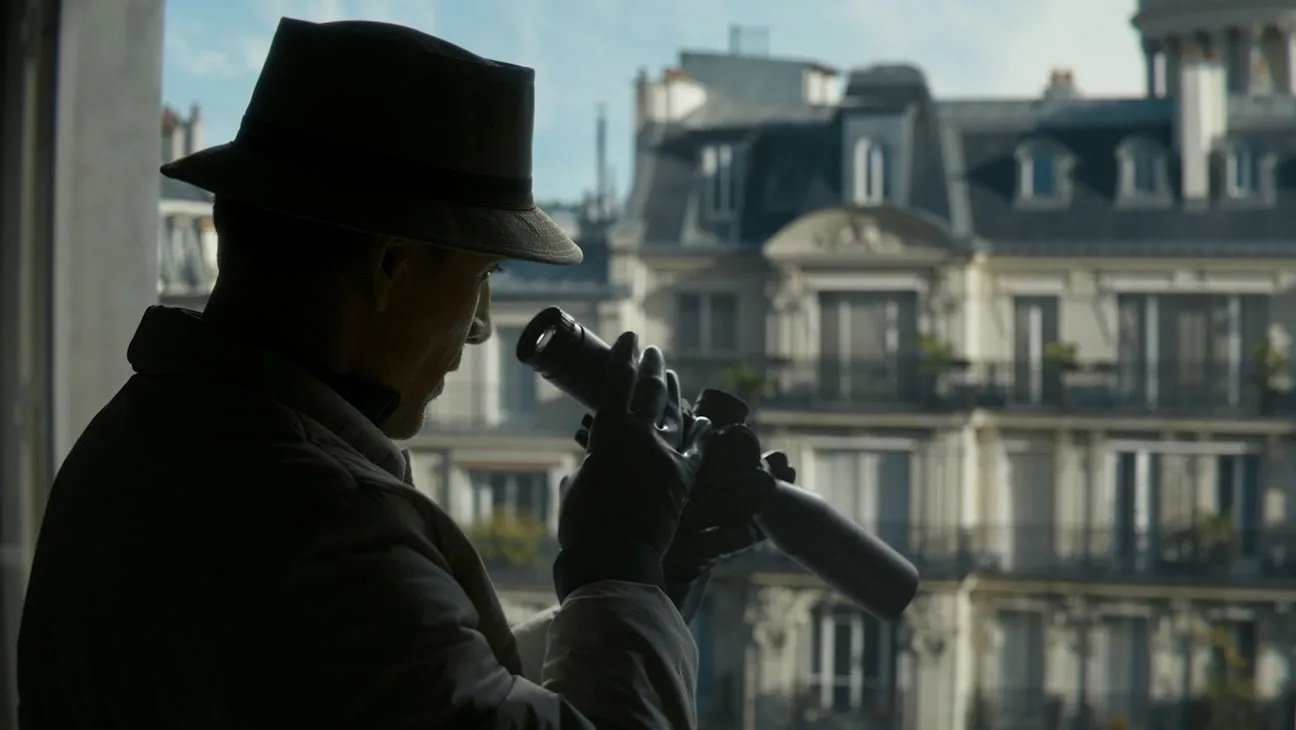If you’re like me, when you hear that David Fincher has a new movie coming out, you get pretty damn excited. The Killer, which opens this Friday for a limited theatrical run before becoming a part of Netflix’s stable of original projects, reunites the director with his Seven screenwriter Andrew Kevin Walker. Based on a French graphic novel series written by Matz and illustrated by Luc Jacamon, it seems to be a bit of a passion project for Fincher, as he first began developing the project in the mid-’00s.
Michael Fassbender, in his first role in nearly four years, plays our lead, an unnamed assassin billed in the credits as merely “The Killer.” I suppose “unnamed” isn’t entirely accurate, as The Killer has a penchant for using many names, they just all happen to belong to old TV characters. This is one of several dichotomies about him, my favorite being his predilection for listening to the Smiths while he works. It’s a surprisingly emotive band for a man that seems very cold on the surface.
Though possessing an icy intelligence and a highly meticulous nature, the story opens with his first-ever botched hit. For a creature of routine, this new experience will prove to be beyond troublesome. See, The Killer is a man of little words, at least on the outside. However, we do have access to some of his interior thoughts via voiceover, and after a while, it’s uncertain whether he’s explaining his philosophy to us, or if he’s trying to convince himself that what he’s doing is justified. This is purposefully ambiguous, which is appropriate considering the murky moral waters the film treads.
We jump from Paris to the Dominican Republic to various locales throughout the US as The Killer methodically looks to eliminate loose ends. It seems to be personal this time, though, which contradicts the code he repeats like a mantra. Remember what I said about dichotomies? The finale feels inevitable, while also puzzling to a certain extent. The Killer remains a mystery to the end.
Walker’s script is tight and propulsive. The narrative is pretty straightforward and deceptively simple. The character work and the details bring the plot alive, though. From The Killer practicing yoga to Tilda Swinton’s character playing on The Killer’s unvoiced doubts via her dialog to the almost anticlimactic confrontation that punctuates the film where we’re left wondering who is more monstrous, Walker’s manipulation of a basic story is masterful and thrilling. There’s no fat here, just lean and muscular storytelling.
Fassbender is an actor that I’ve always enjoyed, and he is in top form here. The vast majority of his dialog is done via voiceover with his internal monolog. However, it’s constantly focused on the job at hand. That is to say, what we learn about his personality can really only be gleaned from how that voiceover plays against what we see on screen or through his subdued expressions. It’s subtle and controlled work, and it’s a testament to Fassbender’s performance and Fincher’s precise direction that we are able to relate to such an amoral character.
Swinton doesn’t have a large role, but it’s an important one. Her chattiness and brighter look work as a sort of chiaroscuro contrast to The Killer, delivering more definition. She’s a wonderful foil. I also quite liked Kerry O’Malley as an office worker who finds herself in a world of shit. The ever-reliable Arliss Howard is memorable as a wealthy schmuck.
Fincher’s typical visual aesthetic of slick, classy, and dark is at play again here. DP Erik Messerschmidt brings the world of The Killer to life. His work is vital to telling the story since the dialog is somewhat deemphasized. Despite this additional requirement, he still manages to maintain a certain artfulness. My favorite sequences are probably the film’s Rear Window-esque opening and the scooter escape in Paris. We traverse urban and rural locales, foreign and domestic locations, wealthy and poor residences, and warm and cold climates with Messerschmidt maintaining a unified look. I will say that I wish that the bruising fight sequence with Sala Baker’s appropriately named The Brute was a little more brightly lit, but that’s really only a slight nitpick.
I’m a longtime Nine Inch Nails fan, so it’s been an absolute joy to see Trent Reznor and composing partner Atticus Ross get so much work. Their work here is heavy and atmospheric at all the right times, but they also deliver some dissonant themes that are reminiscent of malfunctioning electronic equipment. I was also reminded of strange bodily noises. Not so much a heartbeat, for instance, as the sound of blood pumping in your ears or the flutter of a growling stomach. Their pieces absolutely add to the tension, unease, and excitement.
People sometimes describe David Fincher’s films as being cold. I wonder if The Killer is a bit of a response to that. It’s not overt, but I think some of the subtext here could be construed as being reflexive. In any case, The Killer is a fascinating character that made me think of one of my favorite lines from Alan Moore and Dave Gibbons’s Watchmen. “Truly, whoever we are, wherever we reside, we exist upon the whim of murderers.” THE KILLER takes that idea and runs with it. Though I wouldn’t describe this film as being action-packed, it still had me on the edge of my seat and the two-hour runtime blew by. It’s a film that I’m sure will be rolling around in my head for some time. Highly recommended for fans of Le Samouraï, American Psycho, and Haywire.
Michael Cavender





